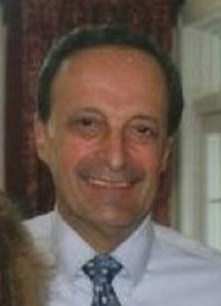Gary Livacari: How I Became an Oxfordian
December 8, 2015

I am greatly indebted to the late Joseph Sobran for introducing me to the Shakespeare authorship question. It was his columns in National Review almost 30 years ago that first alerted me to the controversy. Every so often, he would stray from his normal political milieu and write passionately about the authorship issue. He summarily dismissed the man from Stratford-upon-Avon, whom he usually referred to as “Shaksper,” and was convinced the real author was a nobleman named Edward de Vere, the 17th Earl of Oxford.
I took a rather passive interest in the subject at first, as my exposure to Shakespeare had been limited to the usual high school and college fare. But my interest had been piqued and I continued to read Mr. Sobran’s columns on the subject. Then one day in 1987, after a column exhorting me to read The Mysterious William Shakespeare by Charlton Ogburn, I finally decided to decide for myself what he was so excited about. So I ventured to my local library and lugged home this massive, intimidating 892-page book.
As I opened the book and read the first few pages, I found I was immediately hooked. Unlike many others who take years to form an opinion on the matter, the first 50 pages were enough to convince me that “something was rotten in the state of Denmark.” I was shocked to discover how little evidence there was connecting “Shaksper” with the great works of “Shakespeare.” I was also overwhelmed by the evidence supporting the proposition that Edward de Vere was the true author writing under the pseudonym “William Shakespeare.”
After finishing the book, I immediately joined the Shakespeare Oxford Society and have been a continuous member ever since (editorial note: the SOS and the Shakespeare Fellowship merged in 2013 to form the Shakespeare Oxford Fellowship). Over the years, I’ve even contributed a few articles, letters to the editor, and book reviews. I’d also venture to say I’ve read virtually every book written on the subject from an Oxfordian point of view, too numerous to list here. Of the more recent works, I’ve found The Monument, by Hank Whittemore, to be the most valuable.
One of the highlights from my early years as an Oxfordian was having a friendship with Mr. Ogburn. I was so excited after I finished his book that I actually dialed directory assistance and asked the operator for the phone number of “a Mr. Charlton Ogburn in Beaufort, South Carolina.” Within a few minutes, I found myself speaking with Mr. Ogburn, telling him how much I enjoyed the book. I vividly remember how appreciative he was of my words. This led to a correspondence over a number of years. His letters to me are some of my most treasured possessions.
Of course, now, many years later, the evidence for Edward de Vere as the author “William Shakespeare” has been greatly developed, expanded, and substantiated, proving the case beyond any reasonable doubt. Those of us who have no vested interest other than pursuit of the truth are indebted to the many authors and literary scholars who have contributed so much to the cause.
— Gary Livacari
“How I Became an Oxfordian” is a series edited by Bob Meyers. You may submit your essay on this topic (500 words or less in an editable format such as MS Word), along with a digital photo of yourself, to: communications@shakespeareoxfordfellowship.org. Also include a sentence about yourself, e.g.: “Jane Smith is a business owner in Dallas.” You must be an SOF member to submit an essay.
To join the SOF see our membership page. To read other essays in this series, click here.
Membership dues cover only a fraction of our budget, including all our research, preservation and programming. Please support the SOF by making a gift today!
Blue Boar Tavern: Wassail Q&A
Tuesday Dec. 17, 8pm E / 5pm P
Sign up below for event invites!
